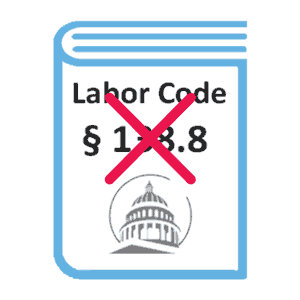Alert: More Unreasonable Physician Reporting Demands

When it comes to billing complications, some California payers are demanding documentation for time-based procedure codes; a demand that is unsubstantiated by California workers’ comp billing regulations.
Worse, California’s arbiter of billing disputes, Maximus, takes a decidedly pro-payer stance on the issue. Recent Independent Bill Review (IBR) cases demonstrate that providers who fail to document the precise times at which the procedure started and ended are risking denials and revenue.
Time-Based Billing Codes
Recent IBRs underscore a new way that payers — abetted by Maximus’ hallmark cooperation with payers — seek to deny accurate reimbursement: by accusing the provider of “double dipping” for concurrently provided authorized services.
The majority of procedure codes are service-based, i.e. they establish reimbursement by the procedure, regardless of how long the procedure takes. But time-based codes, in which the provider must establish how long the procedure took, are found in almost every corner of the Official Medical Fee Schedule (OMFS).
Time-based codes apply to several services, including (but not limited to):
- Evaluation and Management (E/M) prolonged services
- Psychiatric testing
- Anesthesiology
- Functional capacity evaluations
- Physical and occupational therapy
And of course, four of the seven billing codes that make up the Medical-Legal Fee Schedule are time-based, billable in 15-minute units (with the special twist of Modifier 93 for Interpreter Services thrown in for good measure). The requirements for documenting time are a long-standing source of frustration and disputes.
In California, with the burden always on the provider in disputes, documenting the start and stop times will protect your reimbursement from this increasingly common, if dubious, denial strategy.
Concurrent Time-Based Services
According to the IBR decisions, when a provider renders multiple time-based services, the provider must demonstrate that all services occurred at separate times. In order to receive payment, a provider must submit documentation proving they did not multitask when providing the service.
In several IBR cases, Maximus supported the payer’s insistence that in the absence of start and stop times, the payer simply can’t be sure the provider isn’t performing two services at once. These denials by payers are for services authorized by the payer. As the IBR decision below shows:
In this case, the provider billed for 45 minutes of psychotherapy (using CPT Code 90834) and 25 minutes of psychophysiological therapy (using CPT Code 90875). The provider performed these different, separate (and therefore separately billable) services at different times. But as far as Maximus is concerned, that fact is “unclear” in the absence of start and stop times.
Given that providers are losing billing disputes in this manner, a reasonable person might assume that California regulations require providers to provide start and stop times for time-based billing codes. If an authorized service can be denied simply because start and stop times were not precisely documented, the denial must be rooted in the regulations or in some official medical documentation guidelines...right?
Wrong.
No California regulation whatsoever requires a physician to document start or stop times to appear in any documentation, nor bars payment when times are not included. The situation is purely a creation of Maximus.
As is too often the case, gaps in the regulations and Maximus’ whims oblige providers to take extra steps to ensure proper reimbursement. In this case, including the start and stop times for every time-based billing code is another unfortunate “must.”
Now, let’s add unwritten documentation “rules” to the administrative burden already heaped on providers who treat injured workers; a burden which makes delivering such care more expensive, more labor intensive, and more painful than equivalent care delivered to patients covered by Medicare or group health.
Level the playing field. DaisyBill offers everything providers and billers need to submit fast, fully compliant requests for second bill review and independent bill review.
Our Essential Tools includes compliant SBR templates that providers and billers can auto-populate and submit within 30 seconds. It also includes access to our searchable database of IBR decisions to make your case for proper reimbursement airtight. Schedule a free demonstration today!
SCHEDULE DEMO
DaisyBill provides content as an insightful service to its readers and clients. It does not offer legal advice and cannot guarantee the accuracy or suitability of its content for a particular purpose.




